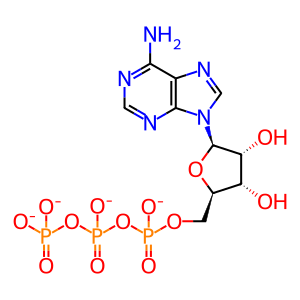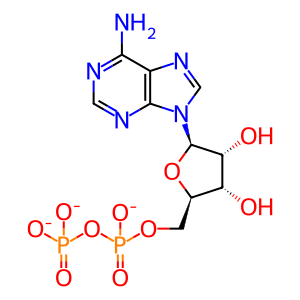Reaction: Active IKBKB phosphorylates NF-kappa-B inhibitor
- in pathway: TAK1-dependent IKK and NF-kappa-B activation
In human, IkBs (NFKBIA, NFKBIB or NFKBIE) are inhibitory proteins that sequesters NF-kappa-B in the cytoplasm by masking a nuclear localization signal, located just at the C-terminal end of the RelA (p65) subunit of the RelA:NFKB1 heterodimer.
A key event in NF-kappa-B activation involves phosphorylation of IkB by an IkB kinase (IKK). The phosphorylation and ubiquitination of IkB kinase complex is mediated by two distinct pathways, either the classical or alternative pathway. In the classical NF-kappa-B signaling pathway, the activated IKK (IkB kinase) complex, predominantly acting through IKK beta (IKKb, IKBKB) in an IKK gamma (IKBKG, NEMO)-dependent manner, catalyzes the phosphorylation of IkBs (at sites equivalent to Ser32 and Ser36 of human NFKBIA (IkB-alpha) or Ser19 and Ser22 of NFKBIB (IkB-beta)). Once phosphorylated, IkB undergoes ubiquitin-mediated degradation, releasing NF-kappa-B.
Reaction - small molecule participants:
ADP [cytosol]
ATP [cytosol]
Reactome.org reaction link: R-HSA-9773803
======
Reaction input - small molecules:
ATP(4-)
Reaction output - small molecules:
ADP(3-)
Reactome.org link: R-HSA-9773803


